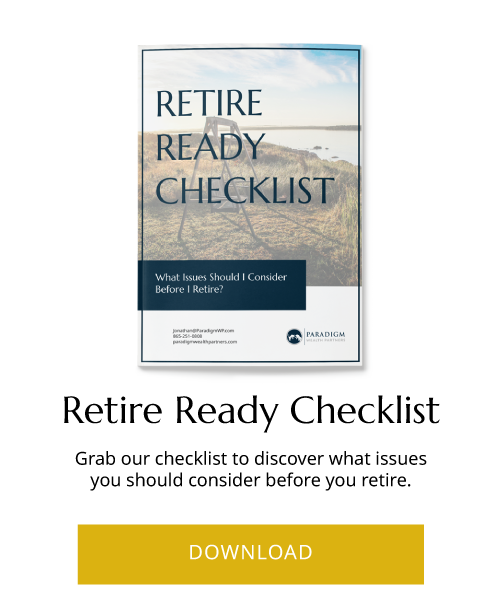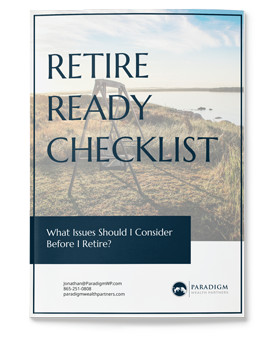The Great Mortgage Debate: Should You Pay Your Mortgage Off Early?
It’s drilled into us that debt is terrible, and we should eliminate it as quickly as we can. And I agree. I’m a big advocate for having no debt for many reasons, including the reduction in the stress that comes with being debt-free among them. But does that extend to mortgage debt too? Is all debt bad?
Does paying your mortgage off early make the most financial sense? Let’s take a look at the pros, the cons, and a brass tacks example that should clearly and with finality answer a question I get asked a lot, “Should you pay your mortgage off early?”
Pros of Paying Your Mortgage Off Early
Paying off your mortgage early does have some significant benefits.
Interest Savings
The two most expensive things in life are taxes and interest. When you avoid or minimize them, you save money. Depending on your mortgage’s term and size, paying it off early could save you thousands or even tens of thousands of dollars.
Reduced Monthly Expenses
The rule of thumb is that we should pay no more than 30% of our gross income on housing costs. Many people can’t manage that, but housing is probably your most significant monthly expense, even if you can. Eliminating it would put a lot of money into your pocket.
A Predictable Return
The stock market goes up and down, and no one can predict when or how much. One year your return might be 13% and the following year 6%. But when you pay off your mortgage early, you’re getting a guaranteed return of whatever the interest rate you were paying was.
Reduced Stress
Some people are just really averse to carrying any debt at all, even “good” debt like mortgage debt. You can run all the numbers to show them that paying off your mortgage early doesn’t make sense from a dollars and cents standpoint, and it won’t matter. But not every decision is made based strictly on dollars and sense. For these people, the psychological benefit of being entirely debt-free is more valuable to them than money.
Cons of Paying Your Mortgage Off Early
While being mortgage-debt-free may seem like it has no downsides, that’s not the case.
Prepayment Penalty
Mortgage lenders don’t want you to pay off your mortgage early because the lender doesn’t collect as much interest as they otherwise would have when you do. To discourage borrowers from paying off their mortgages early, some lenders assess a prepayment penalty.
Most lenders don’t penalize borrowers for making a few extra payments; you can often pay off as much as 20% of the balance of your mortgage each year without penalty.
Different lenders use different models for their prepayment penalties. These are some common ones:
- A percentage of the remaining loan balance. Typically a small percentage like 2% if the loan is paid off within the first two or three years of the term.
- X number of months’ interest.
- A fixed amount.
- A sliding scale penalty based on the length of the mortgage. This is the most common model of prepayment penalty. One example is a sequential 2/1 penalty over the first two years of the loan. If the mortgage is paid off in the first year, the penalty is 2% of the outstanding principal, and if it’s paid off in the second year, the penalty is 1% of the outstanding principal.
Insufficient Emergency Fund
A well-stocked emergency fund is fundamental; having one can insulate you from all kinds of disasters, and not having one can expose you to them. At a bare minimum, your emergency fund should contain three months of essential expenses. Given the events of 2020, it seems prudent to bump that up to at least six months worth and maybe even 12.
If you are focusing on paying off your mortgage early, you may not have enough left over to build a sufficient emergency fund.
Insufficient Retirement Savings
If you have no high-interest debt like credit and a well-stocked emergency fund, your financial priority should be saving for retirement in accounts like 401(k)s and IRAs because of the tax advantages of those accounts. Remember, the two most expensive things in life are taxes and interest, and those accounts help you reduce the amount of taxes you will pay over the years.
The other reason retirement investing should be your priority is because of the power of time. Nothing makes up for time lost when it comes to investing, as you’ll see in the next section.
The Power of Time
Beth and Tom are siblings who each buy a home around the same time. Each purchased a home for $200,000, put 20% down, and have a 30-year mortgage with a rate of 3%. The principal and interest payments are $674.56 per month.
Beth is very conservative and wants to be free of mortgage debt as quickly as possible. Each month Beth paid an additional $675 towards her mortgage, doubling her monthly payment.
Beth was able to pay off her mortgage in 11 years and 9 months. She paid $30,004.59 in interest. When Beth’s mortgage was paid off, she started investing her $675 per month into a Growth ETF.
Tom doesn’t like being in debt either but feels that mortgage debt is “good” debt and is more comfortable having that debt for a longer period of time because that will allow him to save and invest more. Tom invested $675 per month into a Growth ETF. Tom paid off his mortgage at the end of its 30-year term. Over this period, Tom invested $243,000 that earned 9%. That means Tom made 6% more than he was paying in interest. He earned 9% investing, and his mortgage interest rate was 3%.
Beth invested in the Growth ETF for 18 years, Tom for 30 years. The total benefit for Beth’s strategy was $425,000. The total benefit for Tom’s approach was $1,235,751.85.
Both Beth and Tom are now mortgage-free, but Tom had 3.31 times more money in his investment account, which allowed him to retire years earlier than Beth. The secret ingredient to compounding is TIME. Tom had an almost 12-year head start using his strategy, and the benefits were greater than threefold.
Should You Pay Your Mortgage Off Early?
No! The numbers give us a very clear, definitive answer. When you divert money from your investments to pay off your mortgage early, you lose time, and you can’t make up for it.
Important information
The opinions voiced in this material are for general information only and are not intended to provide specific advice or recommendations for any individual.
Investing in ETFs involves risk, including possible loss of principal. Fund value will fluctuate with market conditions The examples presented are hypothetical and are not representative of any specific situation. Your results will vary. The hypothetical rates of return used do not reflect the deduction of fees and charges inherent to investing.
LPL Tracking #1-05111757



